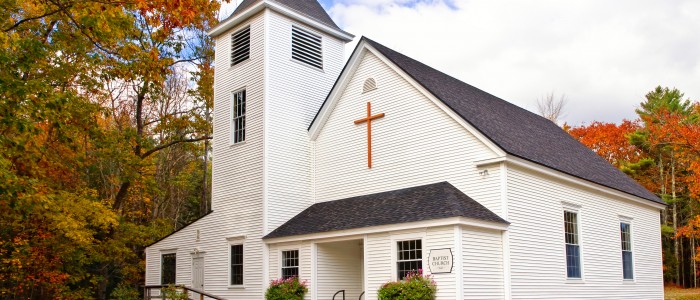What’s Wrong with Small Churches

Perhaps nothing. God uses small churches to do His work. Most of my readers are currently attending or have attended a small church. Some of those churches are effective, and some aren’t. Although there can be a correlation between ineffectiveness and small attendance, many times size is circumstantial. Therefore, a church’s effectiveness isn’t (and shouldn’t be) defined by their attendance.
Many small churches are comfortable in their own skin. But problems can occur when a small church or its leadership begins to believe the grass is greener at a larger church.
This thinking can debilitate church effectiveness – and leaders who suffer from church leader jealously syndrome often chase cool, leading their churches to fruitless pursuits that hinder the Gospel and hurt those who attend.
Before I go further, three small church disclosure statements:
- The first half of my life, I was a part of smaller churches (one with attendance as low as 20 and one as high as 300).
- The second half of my life has been spent serving on staff at three separate larger churches
- Bottom line: I’m not an expert who’s compiled research on small churches*. These are just things I’ve noticed by watching and having conversations with those leading them.
Small churches that have succeeded (anecdotal evidence on my part) not only haven’t fallen into the “grass is greener” ideology, but they’ve also chosen to embrace what God has uniquely given them to do. And often, their smaller size is the very thing that enables them to do what God has called them to do.
No matter their size, effective churches accept the Biblical mission of the church and ask the question: “What is it that God has called us to (uniquely) do?” Another way to ask that, is: “What is it about our physical location, resources, or membership make-up that God can uniquely use to change our community with the Gospel?”
The answer is rarely to expand and grow to become a megachurch. We have to remember:
- God wants growth, but it may not come in the form of membership attendance growth.
- God’s economy doesn’t use the same metrics that most churches do.
The Kingdom effective small church…
… Doesn’t compare, but seeks to contribute.
They don’t waste time comparing their size, ministry model, or resources to other churches. Instead, they contribute to worship, their community, and other like-minded churches and ministries for the sake of the Gospel.
The comparison mindset can be fueled by church members and even other ministers when they’re always asking about numbers or they themselves compare churches.
… Doesn’t agonize over size, but uses its size as an advantage.
A small church is agile, and can often respond more quickly to local and global needs. (A large church’s size can sometimes be a deterrent to speedy response. Often, larger ministry models or structures can also be roadblock — it’s the difference between turning an aircraft carrier and a speed boat.) A small church should embrace their ability to serve people immediately, garner manpower efficiently, and communicate and respond to needs quickly.
…Doesn’t compete, but does contextualize.
Instead of competing with other churches and ministries, they contextualize their efforts to reach the people God has called them to. It’s a niche mentality. If you compete with other churches, you’ll change your church on a whim. And that’s not healthy change. Some small churches are ineffective because they refuse to change. Other small churches are small because they changed too much, and people left. There’s a tension and a church leaders need to navigate it well.
… Doesn’t compromise their calling.
Often, God clearly calls a congregation to a specific people group – and sometimes, pursuing those groups will limit attendance (i.e., you’re called to an ethnic group that only represents 2% growth in your community). I applaud churches who have pursued people God has called them to, even if that means forgoing ministry to larger or higher-resourced people-groups.
I love the local church, and I bet you do too. If God has placed you in leadership at a smaller church, don’t let numbers define you. Instead, embrace God’s definite plan for your church.
*I’ve had Karl Vaters, who pastors and also blogs at New Small Church, guest blog at BrianDodridge.com with the post, “Small church vs. Big Church (size or health).” He’s an excellent resource and a subject matter expert in how small churches can be effective. I encourage readers to read his stuff.
*Outreach magazine spent much of its most recent publication dealing with the small church, “2015 Small Church America.” This is a helpful resource.
